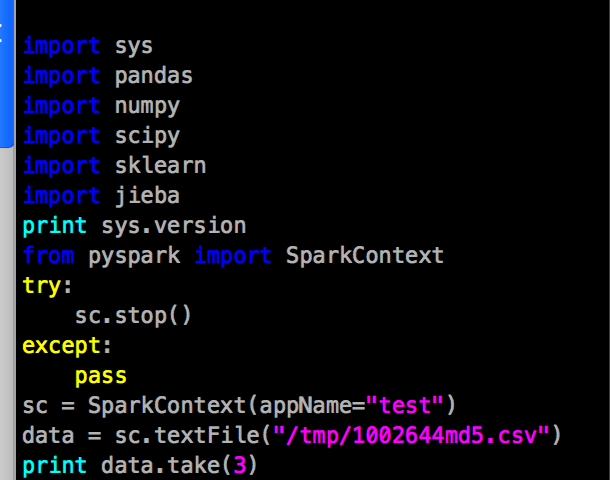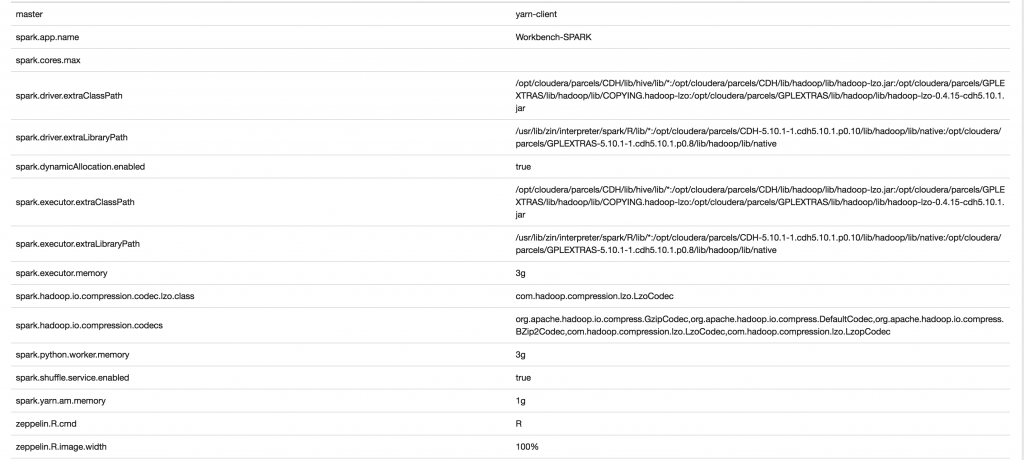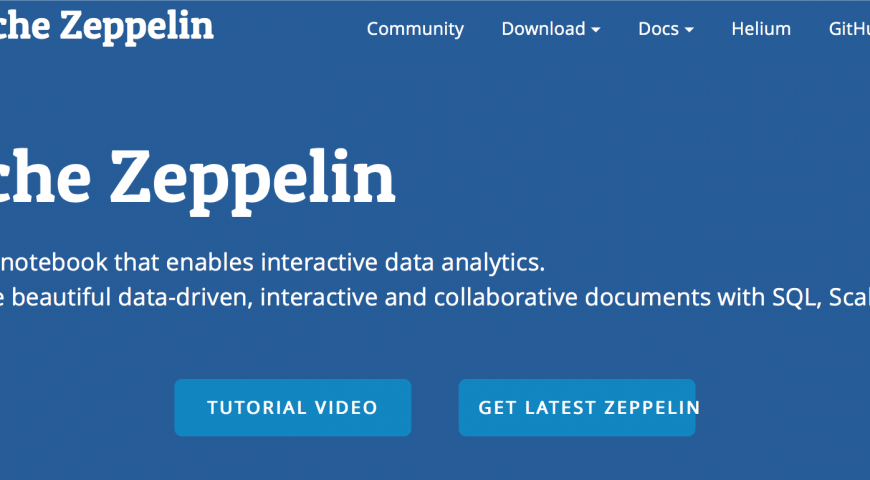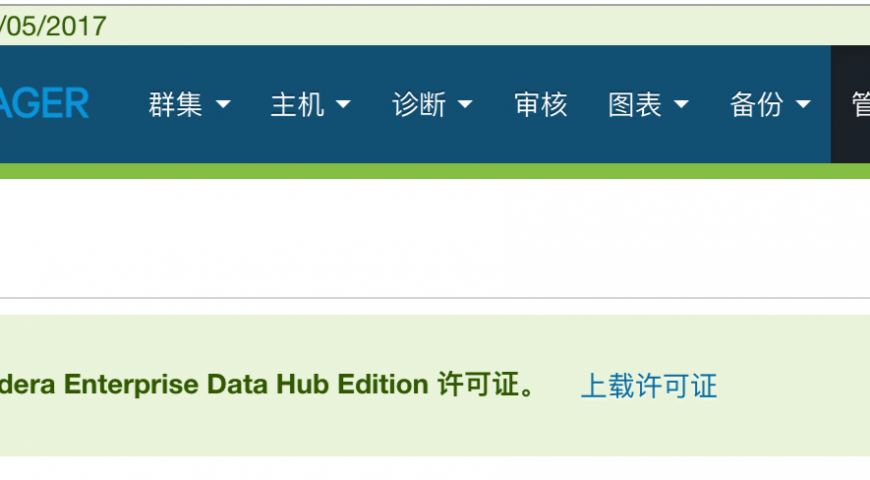%spark2_1.pyspark
from pyspark.sql import SQLContext
from pyspark.sql import HiveContext, Row
from pyspark.sql.types import *
import pandas as pd
import pyspark.sql.functions as F
trial_pps_order = spark.read.parquet('/tmp/exia/trial_pps_select')
pps_order = spark.read.parquet('/tmp/exia/orders_pps_wc_member')
member_info = spark.read.parquet('/tmp/exia/member_info')
# newHiveContext=HiveContext(sc)
query_T="""
select * from crm.masterdata_hummingbird_product_mst_banner_v1
where brand_name = 'pampers'
"""
product_mst=spark.sql(query_T)
product_mst.show()
%spark2_1.pyspark: custom interpreter in Zeppelin 0.7.2
crm.masterdata_hummingbird_product_mst_banner_v1: hive table, data stored in hdfs encrypt zone.
The code throws exception below:
Traceback (most recent call last):
File "/tmp/zeppelin_pyspark-7483288776781667654.py", line 367, in <module>
raise Exception(traceback.format_exc())
Exception: Traceback (most recent call last):
File "/tmp/zeppelin_pyspark-7483288776781667654.py", line 360, in <module>
exec(code, _zcUserQueryNameSpace)
File "<stdin>", line 14, in <module>
File "/usr/lib/spark-2.1.3-bin-hadoop2.6/python/pyspark/sql/dataframe.py", line 318, in show
print(self._jdf.showString(n, 20))
File "/usr/lib/spark-2.1.3-bin-hadoop2.6/python/lib/py4j-0.10.7-src.zip/py4j/java_gateway.py", line 1257, in __call__
answer, self.gateway_client, self.target_id, self.name)
File "/usr/lib/spark-2.1.3-bin-hadoop2.6/python/pyspark/sql/utils.py", line 63, in deco
return f(*a, **kw)
File "/usr/lib/spark-2.1.3-bin-hadoop2.6/python/lib/py4j-0.10.7-src.zip/py4j/protocol.py", line 328, in get_return_value
format(target_id, ".", name), value)
Py4JJavaError: An error occurred while calling o76.showString.
: org.apache.spark.SparkException: Job aborted due to stage failure: Task 0 in stage 3.0 failed 4 times, most recent failure: Lost task 0.3 in stage 3.0 (TID 6, pg-dmp-slave28.hadoop, executor 1): java.io.IOException: No KeyProvider is configured, cannot access an encrypted file
at org.apache.hadoop.hdfs.DFSClient.decryptEncryptedDataEncryptionKey(DFSClient.java:1338)
at org.apache.hadoop.hdfs.DFSClient.createWrappedInputStream(DFSClient.java:1414)
at org.apache.hadoop.hdfs.DistributedFileSystem$3.doCall(DistributedFileSystem.java:304)
at org.apache.hadoop.hdfs.DistributedFileSystem$3.doCall(DistributedFileSystem.java:298)
at org.apache.hadoop.fs.FileSystemLinkResolver.resolve(FileSystemLinkResolver.java:81)
at org.apache.hadoop.hdfs.DistributedFileSystem.open(DistributedFileSystem.java:298)
at org.apache.hadoop.fs.FileSystem.open(FileSystem.java:766)
at org.apache.hadoop.mapred.LineRecordReader.<init>(LineRecordReader.java:109)
at org.apache.hadoop.mapred.TextInputFormat.getRecordReader(TextInputFormat.java:67)
at org.apache.spark.rdd.HadoopRDD$$anon$1.liftedTree1$1(HadoopRDD.scala:257)
at org.apache.spark.rdd.HadoopRDD$$anon$1.<init>(HadoopRDD.scala:256)
at org.apache.spark.rdd.HadoopRDD.compute(HadoopRDD.scala:216)
at org.apache.spark.rdd.HadoopRDD.compute(HadoopRDD.scala:102)
at org.apache.spark.rdd.RDD.computeOrReadCheckpoint(RDD.scala:323)
at org.apache.spark.rdd.RDD.iterator(RDD.scala:287)
at org.apache.spark.rdd.MapPartitionsRDD.compute(MapPartitionsRDD.scala:38)
at org.apache.spark.rdd.RDD.computeOrReadCheckpoint(RDD.scala:323)
at org.apache.spark.rdd.RDD.iterator(RDD.scala:287)
at org.apache.spark.rdd.MapPartitionsRDD.compute(MapPartitionsRDD.scala:38)
at org.apache.spark.rdd.RDD.computeOrReadCheckpoint(RDD.scala:323)
at org.apache.spark.rdd.RDD.iterator(RDD.scala:287)
at org.apache.spark.rdd.MapPartitionsRDD.compute(MapPartitionsRDD.scala:38)
at org.apache.spark.rdd.RDD.computeOrReadCheckpoint(RDD.scala:323)
at org.apache.spark.rdd.RDD.iterator(RDD.scala:287)
at org.apache.spark.rdd.MapPartitionsRDD.compute(MapPartitionsRDD.scala:38)
at org.apache.spark.rdd.RDD.computeOrReadCheckpoint(RDD.scala:323)
at org.apache.spark.rdd.RDD.iterator(RDD.scala:287)
at org.apache.spark.rdd.MapPartitionsRDD.compute(MapPartitionsRDD.scala:38)
at org.apache.spark.rdd.RDD.computeOrReadCheckpoint(RDD.scala:323)
at org.apache.spark.rdd.RDD.iterator(RDD.scala:287)
at org.apache.spark.scheduler.ResultTask.runTask(ResultTask.scala:87)
at org.apache.spark.scheduler.Task.run(Task.scala:100)
at org.apache.spark.executor.Executor$TaskRunner.run(Executor.scala:325)
at java.util.concurrent.ThreadPoolExecutor.runWorker(ThreadPoolExecutor.java:1149)
at java.util.concurrent.ThreadPoolExecutor$Worker.run(ThreadPoolExecutor.java:624)
at java.lang.Thread.run(Thread.java:748)
Driver stacktrace:
at org.apache.spark.scheduler.DAGScheduler.org$apache$spark$scheduler$DAGScheduler$$failJobAndIndependentStages(DAGScheduler.scala:1455)
at org.apache.spark.scheduler.DAGScheduler$$anonfun$abortStage$1.apply(DAGScheduler.scala:1443)
at org.apache.spark.scheduler.DAGScheduler$$anonfun$abortStage$1.apply(DAGScheduler.scala:1442)
at scala.collection.mutable.ResizableArray$class.foreach(ResizableArray.scala:59)
at scala.collection.mutable.ArrayBuffer.foreach(ArrayBuffer.scala:48)
at org.apache.spark.scheduler.DAGScheduler.abortStage(DAGScheduler.scala:1442)
at org.apache.spark.scheduler.DAGScheduler$$anonfun$handleTaskSetFailed$1.apply(DAGScheduler.scala:802)
at org.apache.spark.scheduler.DAGScheduler$$anonfun$handleTaskSetFailed$1.apply(DAGScheduler.scala:802)
at scala.Option.foreach(Option.scala:257)
at org.apache.spark.scheduler.DAGScheduler.handleTaskSetFailed(DAGScheduler.scala:802)
at org.apache.spark.scheduler.DAGSchedulerEventProcessLoop.doOnReceive(DAGScheduler.scala:1670)
at org.apache.spark.scheduler.DAGSchedulerEventProcessLoop.onReceive(DAGScheduler.scala:1625)
at org.apache.spark.scheduler.DAGSchedulerEventProcessLoop.onReceive(DAGScheduler.scala:1614)
at org.apache.spark.util.EventLoop$$anon$1.run(EventLoop.scala:48)
at org.apache.spark.scheduler.DAGScheduler.runJob(DAGScheduler.scala:628)
at org.apache.spark.SparkContext.runJob(SparkContext.scala:1928)
at org.apache.spark.SparkContext.runJob(SparkContext.scala:1941)
at org.apache.spark.SparkContext.runJob(SparkContext.scala:1954)
at org.apache.spark.sql.execution.SparkPlan.executeTake(SparkPlan.scala:333)
at org.apache.spark.sql.execution.CollectLimitExec.executeCollect(limit.scala:38)
at org.apache.spark.sql.Dataset$$anonfun$org$apache$spark$sql$Dataset$$execute$1$1.apply(Dataset.scala:2390)
at org.apache.spark.sql.execution.SQLExecution$.withNewExecutionId(SQLExecution.scala:57)
at org.apache.spark.sql.Dataset.withNewExecutionId(Dataset.scala:2792)
at org.apache.spark.sql.Dataset.org$apache$spark$sql$Dataset$$execute$1(Dataset.scala:2389)
at org.apache.spark.sql.Dataset.org$apache$spark$sql$Dataset$$collect(Dataset.scala:2396)
at org.apache.spark.sql.Dataset$$anonfun$head$1.apply(Dataset.scala:2132)
at org.apache.spark.sql.Dataset$$anonfun$head$1.apply(Dataset.scala:2131)
at org.apache.spark.sql.Dataset.withTypedCallback(Dataset.scala:2822)
at org.apache.spark.sql.Dataset.head(Dataset.scala:2131)
at org.apache.spark.sql.Dataset.take(Dataset.scala:2346)
at org.apache.spark.sql.Dataset.showString(Dataset.scala:248)
at sun.reflect.NativeMethodAccessorImpl.invoke0(Native Method)
at sun.reflect.NativeMethodAccessorImpl.invoke(NativeMethodAccessorImpl.java:62)
at sun.reflect.DelegatingMethodAccessorImpl.invoke(DelegatingMethodAccessorImpl.java:43)
at java.lang.reflect.Method.invoke(Method.java:498)
at py4j.reflection.MethodInvoker.invoke(MethodInvoker.java:244)
at py4j.reflection.ReflectionEngine.invoke(ReflectionEngine.java:357)
at py4j.Gateway.invoke(Gateway.java:282)
at py4j.commands.AbstractCommand.invokeMethod(AbstractCommand.java:132)
at py4j.commands.CallCommand.execute(CallCommand.java:79)
at py4j.GatewayConnection.run(GatewayConnection.java:238)
at java.lang.Thread.run(Thread.java:748)
Caused by: java.io.IOException: No KeyProvider is configured, cannot access an encrypted file
at org.apache.hadoop.hdfs.DFSClient.decryptEncryptedDataEncryptionKey(DFSClient.java:1338)
at org.apache.hadoop.hdfs.DFSClient.createWrappedInputStream(DFSClient.java:1414)
at org.apache.hadoop.hdfs.DistributedFileSystem$3.doCall(DistributedFileSystem.java:304)
at org.apache.hadoop.hdfs.DistributedFileSystem$3.doCall(DistributedFileSystem.java:298)
at org.apache.hadoop.fs.FileSystemLinkResolver.resolve(FileSystemLinkResolver.java:81)
at org.apache.hadoop.hdfs.DistributedFileSystem.open(DistributedFileSystem.java:298)
at org.apache.hadoop.fs.FileSystem.open(FileSystem.java:766)
at org.apache.hadoop.mapred.LineRecordReader.<init>(LineRecordReader.java:109)
at org.apache.hadoop.mapred.TextInputFormat.getRecordReader(TextInputFormat.java:67)
at org.apache.spark.rdd.HadoopRDD$$anon$1.liftedTree1$1(HadoopRDD.scala:257)
at org.apache.spark.rdd.HadoopRDD$$anon$1.<init>(HadoopRDD.scala:256)
at org.apache.spark.rdd.HadoopRDD.compute(HadoopRDD.scala:216)
at org.apache.spark.rdd.HadoopRDD.compute(HadoopRDD.scala:102)
at org.apache.spark.rdd.RDD.computeOrReadCheckpoint(RDD.scala:323)
at org.apache.spark.rdd.RDD.iterator(RDD.scala:287)
at org.apache.spark.rdd.MapPartitionsRDD.compute(MapPartitionsRDD.scala:38)
at org.apache.spark.rdd.RDD.computeOrReadCheckpoint(RDD.scala:323)
at org.apache.spark.rdd.RDD.iterator(RDD.scala:287)
at org.apache.spark.rdd.MapPartitionsRDD.compute(MapPartitionsRDD.scala:38)
at org.apache.spark.rdd.RDD.computeOrReadCheckpoint(RDD.scala:323)
at org.apache.spark.rdd.RDD.iterator(RDD.scala:287)
at org.apache.spark.rdd.MapPartitionsRDD.compute(MapPartitionsRDD.scala:38)
at org.apache.spark.rdd.RDD.computeOrReadCheckpoint(RDD.scala:323)
at org.apache.spark.rdd.RDD.iterator(RDD.scala:287)
at org.apache.spark.rdd.MapPartitionsRDD.compute(MapPartitionsRDD.scala:38)
at org.apache.spark.rdd.RDD.computeOrReadCheckpoint(RDD.scala:323)
at org.apache.spark.rdd.RDD.iterator(RDD.scala:287)
at org.apache.spark.rdd.MapPartitionsRDD.compute(MapPartitionsRDD.scala:38)
at org.apache.spark.rdd.RDD.computeOrReadCheckpoint(RDD.scala:323)
at org.apache.spark.rdd.RDD.iterator(RDD.scala:287)
at org.apache.spark.scheduler.ResultTask.runTask(ResultTask.scala:87)
at org.apache.spark.scheduler.Task.run(Task.scala:100)
at org.apache.spark.executor.Executor$TaskRunner.run(Executor.scala:325)
at java.util.concurrent.ThreadPoolExecutor.runWorker(ThreadPoolExecutor.java:1149)
at java.util.concurrent.ThreadPoolExecutor$Worker.run(ThreadPoolExecutor.java:624)
... 1 more
So, Spark will use hive-site.xml to connect hiveserver2 in its conf directory. such as /usr/lib/spark-2.1.0-bin-hadoop2.6/conf, and the hive-site.xml will transmit to hive.
Solution:
add encrypt to hive-site.xml
<property>
<name>hadoop.security.key.provider.path</name>
<value>kms://http@dmp-master2.hadoop:16000/kms</value>
</property>
<property>
<name>dfs.encrypt.data.transfer.algorithm</name>
<value>3des</value>
</property>
<property>
<name>dfs.encrypt.data.transfer.cipher.suites</name>
<value>AES/CTR/NoPadding</value>
</property>
<property>
<name>dfs.encrypt.data.transfer.cipher.key.bitlength</name>
<value>256</value>
</property>
<property>
<name>dfs.encryption.key.provider.uri</name>
<value>kms://http@dmp-master2.hadoop:16000/kms</value>
</property>





